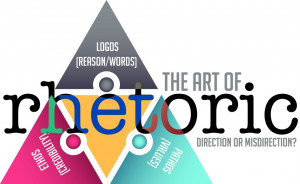![]()
Resistance to change is a perennial topic in leadership. The Office of Personnel Management devotes Executive Core Qualification #1 entirely to the concept of Leading Change. According to Daniel Ames, Associate Professor of Leadership and Ethics at Columbia University, “managing conflict is a critical predictor of leadership success” and goes on to show how “what works for effective police officers on the street converges with recent findings in social science.”
U.S. Park Rangers are fully commissioned federal law enforcement officers and as such, are frequently called upon to confront people in tense, uncertain, rapidly evolving, and often dangerous situations. A ranger, within a short period of time, must gather information, gain control of a situation and/or an individual, influence the individual’s behavior, and maintain their own safety as well as that of the individual and the public. One method of avoiding conflicts and decreasing resistance which has achieved significant critical acclaim in recent years is Verbal Judo.
The gentle way
Judo literally means “the gentle way.” The theory of Judo posits that resisting an opponent may result in your defeat, whilst adjusting to and evading your opponent’s attack will cause him to lose his balance, reducing his power, thereby enabling your victory. The concept of Verbal Judo proposes that conflict escalation and resistance can be reduced through effective communication based on five universal principles of human interaction; true regardless of age, race, religious affiliation, cultural background, gender, etc.
1) People wish to be respected
2) People would rather be asked than told
3) People have a desire to know why
4) People prefer to have options over threats
5) People want to have a second chance
“Natural language” and the importance of rhetoric
Our “natural language” – those words that come quickly to mind – is reactive and often based upon emotion. Thus, most people’s words may inadvertently increase resistance. To avoid this, one must never react in conversation or negotiation. “React” comes from the Latin “Re” meaning “to come back to” the act, literally “done again.” If you react, the act controls you. Instead, you must respond – or in Latin, “re-answer” or “re-pledge.”
Verbal Judo also involves principles of classical rhetoric first described by the Greek philosopher Aristotle, to find the best means of persuasion in any given instant. In law enforcement, this work often entails bending the will of others to conform to the law by altering their beliefs and actions. Our unique service means U.S. Park Rangers must often think for others – in the moment – as they might think for themselves 48 to 72 hours later. Our words generate a powerful appeal and help convince others that our ideas are valid. Aristotle divided these appeals into three main categories; Ethos, Pathos, and Logos.

Ethos: (Ethical appeal) the speaker’s credibility and authority. One of the central principles of rhetoric is to project an impression that you are worth listening to, as well as someone who is likable and worthy of respect.
Pathos: (Emotional appeal) the emotional or motivational appeals; values-based language and numerous sensory details. Paint a specific picture rooted in their interests, not yours.
Logos: (Rational appeal) the logic used to support a claim (induction and deduction); can also be the facts and statistics used to help support the argument. However, on the street, the use of reason and logic is oftentimes the weakest appeal because most people may not think rationally or logically in crisis situations.
Police departments that have incorporated the use of Verbal Judo see fewer uses of force, fewer public complaints, greater employee efficiency, increased employee and agency professionalism, and improved community relations.
Lessons for change efforts
So how does this translate from the street to the office? With fewer differences than one might think. To start, if you are a manager, try replacing dictates with dialogue. Remember principle #2 – people would rather be asked than told and #4 – people prefer to have options rather than threats. A change of heart cannot be imposed from above; it must be chosen. Effective leaders must help their employees discover what they really want, and how that relates to agency objectives. The ability to appeal to, and influence the actions of others is a key element of effective 21st century leadership. To generate solutions and overcome barriers we must continually shape our communications to foster cooperation and collaboration. We must respond rather than react and be aware of the power of empathy and the rhetorical components so effective in Verbal Judo. When we can think and articulate our points from another’s perspective, we will quickly discover the best verbal and non-verbal means of influence. If we use this rhetorical technique to influence others to move when they show resistance, it will prove our path to success.
Dylan Mroszczyk-McDonald is part of the GovLoop Featured Blogger program, where we feature blog posts by government voices from all across the country (and world!). To see more Featured Blogger posts, click here.




Leave a Reply
You must be logged in to post a comment.